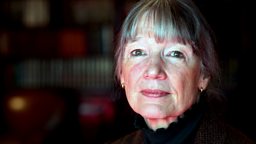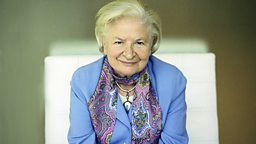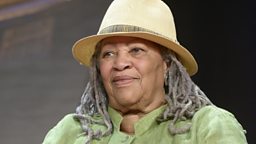Rose Tremain
Rose Tremain was 33 years old when she published her first book Sadler’s Birthday. It allowed her to leave her job in publishing and begin her life as a full-time author. Her 1989 novel Restoration was shortlisted for the Man Booker Prize and was named Sunday Express Book of the Year.
-
![]()
Sara Kestelman reads from the new and disturbing novel by Rose Tremain. Set in the Cevennes, an untamed area of southern France, it is the story of two very different sets of siblings
-
![]()
Tremain explains the idea behind her entry for the 2014 �鶹������ҳ��� National Short Story Award, The American Lover, and reveals how experiences in her own youth inspired the story of an intergenerational love affair.
-
![]()
Harriet Gilbert and Tremain discuss her acclaimed sixth novel Restoration, published in 1989, the story of Robert Merivel, a 17th-century English physician. First broadcast in April 2014.
-
![]()
Tremain picks her Desert Island Discs in 1997, which include Dance Me To The End Of Love by Leonard Cohen and Rhapsody in Blue by George Gershwin.
-
![]()
The author spoke to Mariella Frostrup in 2009 about the impact of using real places and characters within the confines of her fiction. She says: “If the history is the skeleton then fiction can put flesh onto that skeleton in the way readers won’t expect.”
-
![]()
James Naughtie and readers meet Rose Tremain to discuss her book Music and Silence, winner of the 1999 Whitbread Novel award about 17th century Denmark. First broadcast in March 2002.

About the author
On the decision to become a writer, Rose Tremain remembers a turning point in her life at the age of eleven.
Read more
"I remember standing in the middle of a very beautiful hayfield with the sun going down and thinking that I didn't want just to describe how beautiful I thought that place was but I wanted to write down all my feelings about it, and then try to make some equation between that place and what I felt about it and what hopes I had for my own life.”
Tremain's 1989 novel Restoration showcased the writer’s near unparalleled ability to inhabit the consciousness of one at a far remove from herself; the narrator being a 17th Century English physician.
The author admitted that she was so enamoured with the voice that she had written for this character that she couldn’t resist writing a sequel, the award-winning Merivel: A Man of His Time, in 2012. Less bawdy than the first and with a tone inching toward elegy, our protagonist is just as endearing, entertaining and human as he who first won our hearts.
This particular skill of adopting voices was noted too in 1997’s mysterious and romantic The Way I Found Her, narrated by a 13-year-old boy turned supersleuth. The author herself remembers discussing the novel with Prince Charles; when told she hadn’t based the protagonist on a teenage son of her own, he retorted, astonished, “Do you mean you made it all up?”
Her writing is at once entertaining and poignant; highly polished whilst intensely human. Tremain shows her mastery of the historical novel too in Music & Silence (1999), set in the superstitious and seductive court of 17th Century Danish monarch King Christian IV.
Moving further afield in The Colour (2003), we hear of 19th Century New Zealand pioneers attempting to make their fortunes and navigate embittered marriages in a bleached, hardened landscape, a tale which is exposed with skilful economy and extraordinary authenticity.
Tremain is also highly acclaimed for her short stories, often having made the shortlist for the �鶹������ҳ��� National Short Story Award. In 2014, her story The American Lover was shortlisted for the prize, and was to be the title story from her collection of the same year. Impressive in its scope and range, The American Lover exposes love affairs bathed in isolation and remoteness, and is charged with the at turns dazzling, sad lives of its protagonists.
Rose Tremain has said of her own craft, “I suspect that many writers deceive themselves about why they write. My self-deception is that I create in order to understand and that the final end of it all might be wisdom. This means that I deliberately seek out the strange, the unfamiliar, even the unknowable, as subjects for my novels and trust my imagination to illuminate them to the point where both I and the reader can see them with a new clarity.”
She is Chancellor of the University of East Anglia, having studied and taught at the University after spending time at the Sorbonne.
Anne Isger, �鶹������ҳ��� Readings Unit

























